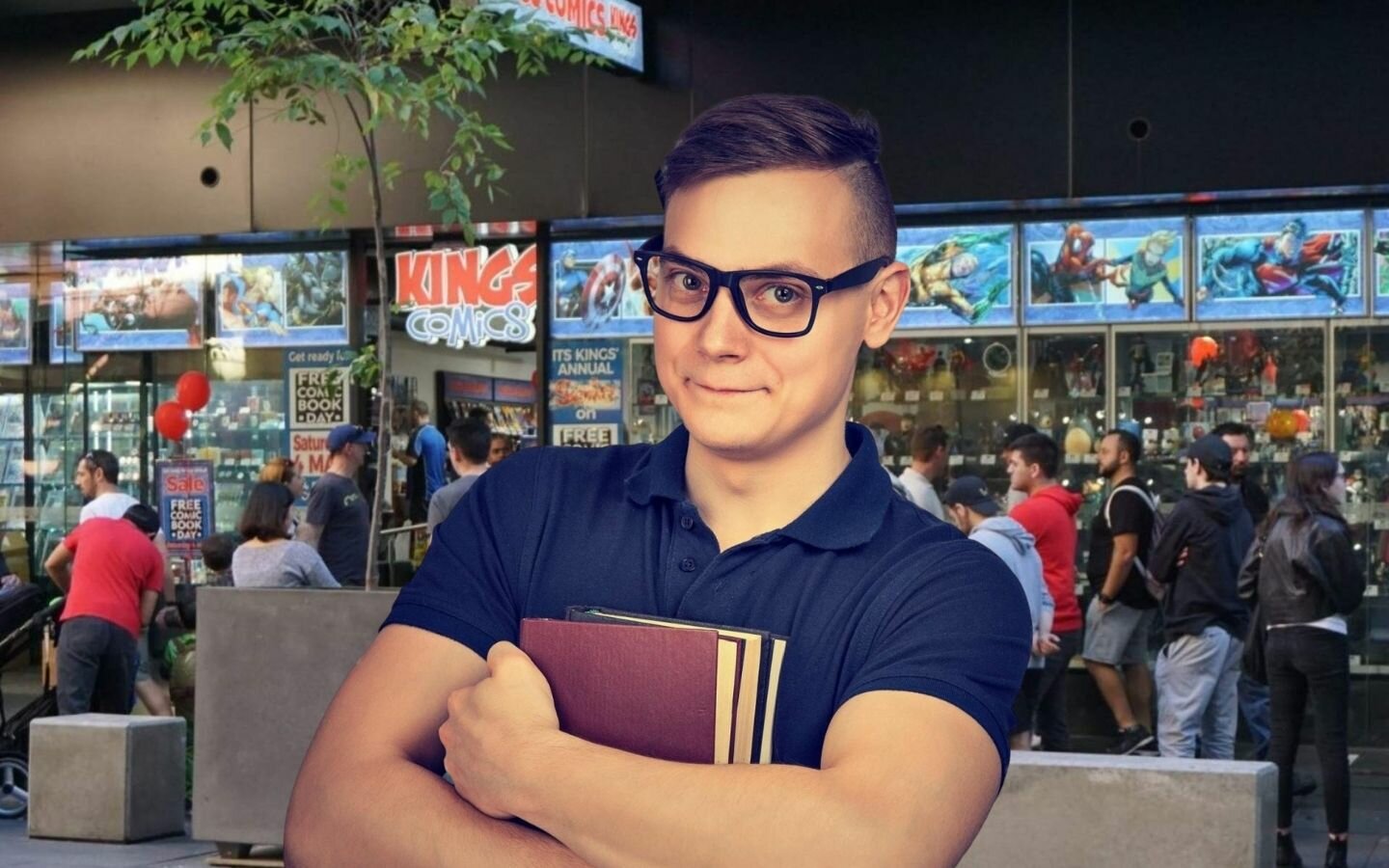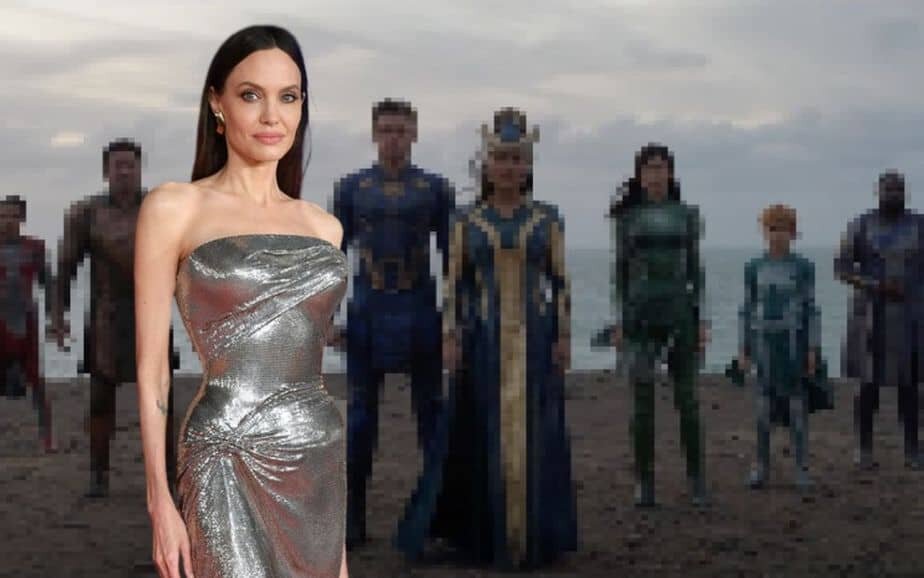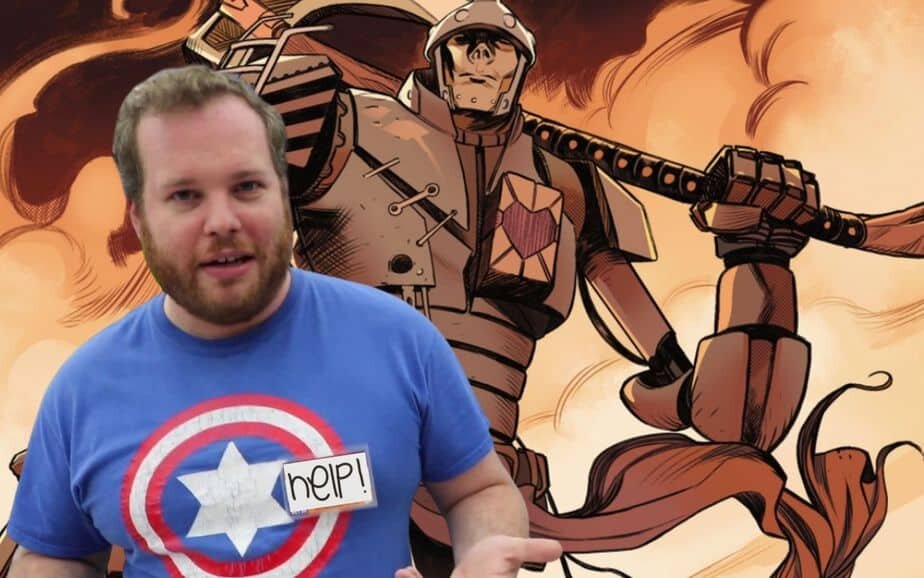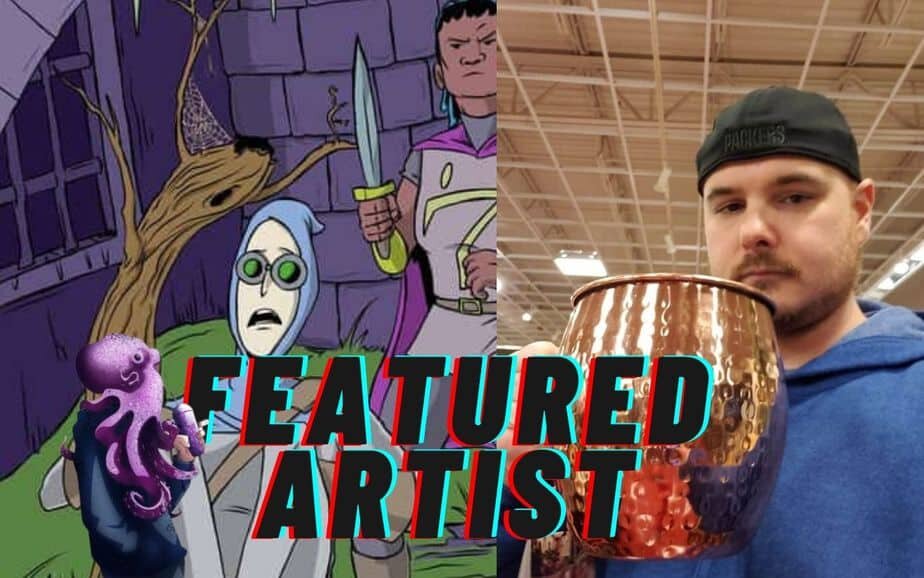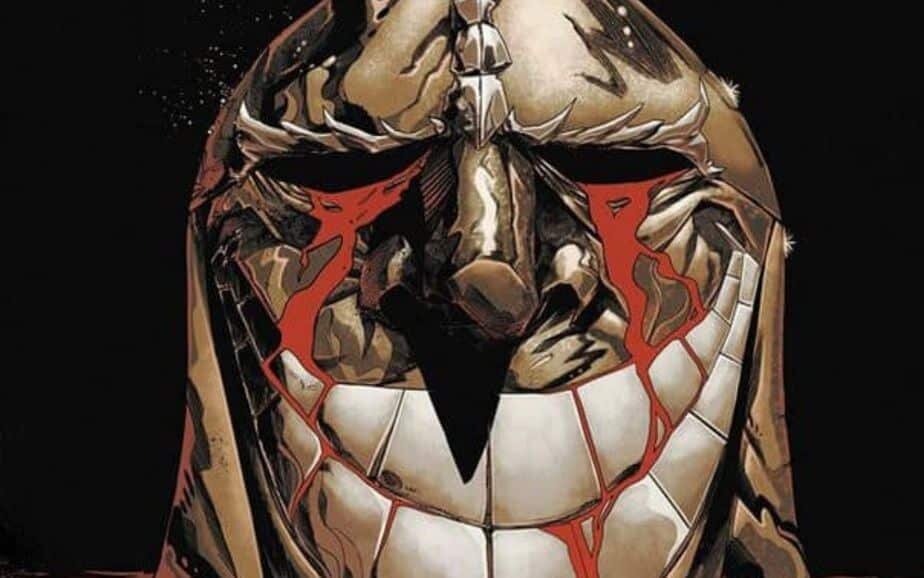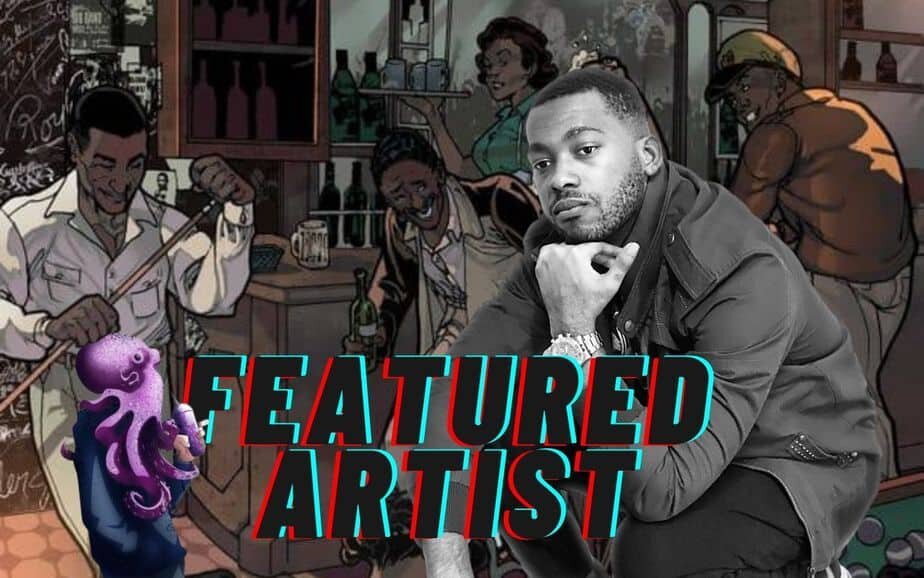
I got a chance to talk with Mad Cave Studios assistant editor, Brian Hawkins.
I hope you enjoy this conversation as much as we did!
AN INTERVIEW WITH BRIAN HAWKINS
If you buy something from a link, we may earn a commission. This is used to help maintain the site and create more content for you!
Anthony Pollock: You’ve been working at Mad Cave Studios as an editor. What’s being taking up most of your time?
Brian Hawkins: Well, I will have to admit that I mostly do freelance. So I freelance for smaller companies. Private companies who need copy for brochures. Or if they’re trying to get something out to a certain group. I’ve only really gotten back into crafting and cultivating some time to work on some creative own ideas that I have. So mostly it’s freelancing, Blackbox, and Mad Cave that really takes up a lot of my time.
Anthony Pollock: You also have your own label, Gnosis Entertainment, tell us about that.
Brian Hawkins: Gnosis is an entity that I call myself. A publishing imprint or self publishing company which is my outlet for my creator owned things where, you know, if I just want to get something out there. I’ve never been able to hit that smooth rhythm of getting everything out but I’m working on that now. To craft that time frame of something continuously coming out through Gnosis as well.
Anthony Pollock: What got you into writing? If you could look back, what moment in your life made you think ‘I’m going to be a writer?’
Brian Hawkins: I would definitely say it started at a early age. I’ve always loved stories. From Sesame Street to cartoons.Stories have always been a part of my life. In hindsight, I can definitely see that stories hVe been been very significant for me. There are a few moments where things kind of click and it was a lightbulb moment.
One was definitely watching love and basketball where that light went off. There was this one kid’s book called ‘Brave Irene’ and when the librarian read that to us. I loved that story. I love the like the snow element of it. I love that the character was going out to grate the snow for her sick mom and I remember they did a contest to win it. So I wrote something, I entered it and I won the book. I still have that book. So in every facet of my life, from elementary school high school, there’s always this moment where writing and storytelling came forward.
Anthony Pollock: Came forward in what aspect?
Brian Hawkins: It kind of became the thing that I did became it was therapeutic in a way for me to hide some insecurities. Story telling felt enlightening.
Anthony Pollock: When you say insecurities, what sort of insecurities have you overcome as a result of being a Writer/Editor?
Brian Hawkins: Well, for example, I suffered from stuttering from middle school to high school. But the thing about that is you’re really always a stutterer because even when you’re not, stuttering is in your mind. You remember the feeling and you remember all those things.
LISTEN TO THE FULL INTERVIEW HERE:
Anthony Pollock: So how did you get started with writing for comic books? How did that journey start for you?
Brian Hawkins: So I would really say that my journey writing began. I used to write plays. I wrote, produced and directed three plays. I was still teaching, eventually got married, had kids and then I kind of took a break from putting work out there. I had sent screenplays out to agents but I felt small time.
So I didn’t really put anything out until I fell back into comics. They have been a huge part of my my childhood and I was an aspiring writer. So I looked up how to write comic books and I found an artist that summer. So I began trying to put out a story that I thought about while I was still an undergrad called America’s Kingdom. So I began to began to shop the idea around. Unfortunately, I didn’t get any takers.
Anthony Pollock: I think the most important thing is finishing a project whether it’s blogging or writing a comic book. Whether it’s good or not. At least you’ve finished that project.
Brian Hawkins: I agree with you. It’s a process. That’s what I learned. It’s all a process and not everything is going to be good, great or perfect. You’re not going to say ‘I’m going to use everything’ so you’re right. And I think that’s the writer’s life.
Anthony Pollock: Okay, so let’s talk about Mad Cave Studios. What are you working on at the moment?
Brian Hawkins: So the incredible thing about Mad Cave Studios is that I’ve never written anything for them. I’ve done some work for them that has appeared inside the book, but mostly I’m one of their editors. So I get to say I’ve gotten to touch every single book in some way and for that I truly count it as a blessing and honour. I’m very fortunate to just be able to look over the scripts, get the art and go through that whole process. The company itself has amazing writers and of course, Mad Cave Studios’s owner Mark London, who is truly humble.
Anthony Pollock: There are a lot of up and coming Comic Book creators who are taking on many tasks but seem to skip the editing process. Do you think comic book creators should be should be paying for editors?
Brian Hawkins: A tedency and vice we have as human beings is you look at what you’ve written and automatically want to believe that it’s fine the way it is. I think that’s part of our survival mechanism. If you want to be challenged. If you want to be the best version of yourself as a writer or creator then you need to let someone else put their eyes on it and challenge you about things like beats, development, and pacing.
But then there’s a lot of different things that go into the medium that you’re writing. Your screenplay won’t work the same way your script for a graphic novel will. I think having an editor is very, very important. I’ve learned a lot from being on the editor’s side and it’s really humbled me as a writer. I don’t write the same way anymore. Getting an editor changes the land of writing.
Anthony Pollock: How did that process humble you?
Brian Hawkins: I don’t believe everything I write is good and I definitely don’t believe it’s all great. I look at it as a process and I know that it takes patience as well. I don’t try to get the all of the story out immediately anymore. It depends on how the storey feels. I write a certain part and I’ll let it sit for a few hours, Maybe I might go for a walk and I come back to it and what happens is I’m in a different mindset now.
So I’m going to look at it in a different lens because I’m not trying to get it all out at once. So kind of playing that game of ‘where’s your mind at at this point?’ Versus how it may feel the next morning. How do you want the script to look as opposed to just getting the story out for the project. That’s how I view scripts. It’s an art project. I’m so happy when I get a script that looks good and reads well. It’s about owning his or her craft.
Anthony Pollock: You’re saying what looks good, but what do you look for? And what do you push back on as an editor?
Brian Hawkins: So I’m big on pacing the story. I mean, people may not realise, but you really have to pace out a comic book. It’s so critical. It’s so visual. How many panels you have on a page actually plays into the script. How the readers eyeball the flowing of the page. So I’m not only looking at the words. I’m taking the words, the panel description, the numbering of the panels, and imagining how the rhythm will be.
Anthony Pollock: One of my pet peeves is having that page turn moment on the wrong page. What are your thoughts on this?
Brian Hawkins: Turning of the page is so important and you get to see that in script form as an editor and sometimes as a writer. Sometimes I have the discussion around ‘okay let’s move that panel that you have on Page One to Page Three’ and so on. You can get that reaction, that visual feeling that you want. It’s things like that which I find very cool to play around with.
Anthony Pollock: So tell me about what you’re doing over at Black Box.
Brian Hawkins: I’m very excited about Blackbox Comics. I’m writing for them a book called Devil’s Dominion that’s going to be coming out through them is not a set time yet. I was fortunate to link up with with them. I knew a couple of people that have worked with Blackbox and we kind of hit off almost immediately. This concept just began to build out this story. And now Raffaele Forte, who works on Soulfire for Aspen Comics. I love Raph. He’s so amazing. He’s doing the art for issue one through five of this book. So I’m really, really excited.
WHERE TO FIND BRIAN HAWKINS
Brian Hawkins, Assistant Editor for Mad Cave Studios
Brian Hawkins on Twitter
Brian Hawkins on Comixology
Protect your Comic Books like the Professionals

Protect your Comic Books like the Professionals by purchasing your very own Comic Book BCW Starter Kit through Amazon.


